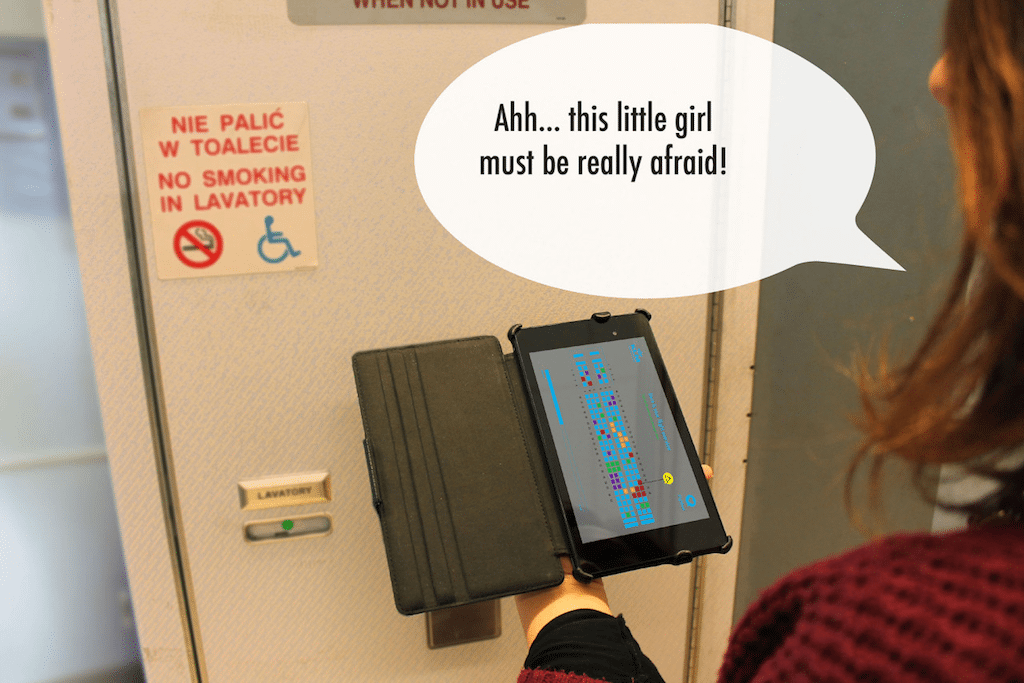Skift Take
Any ideas to improve airlines’ understanding of how their passengers feel in-flight couldn’t come soon enough.
The old flight attendant call-button could be on its way out if a clever health app by Delft University of Technology in the Netherlands takes off.
Instead, flight attendants will get a clear view of what passengers are distressed or ill just by looking at an app on their airline-issued tablets which monitors passenger well-being.
This may all sound too sci-fi to fly (and for now it is), but airlines are considering a number of ways to gauge well being and passenger satisfaction—without relying solely on passenger feedback.
Students Flaminia del Conte, Mirthe Monninkhof and Quirine van Walt Meijer designed the FlightBeat platform to use heart-rate sensors built into the aircraft seat to monitor passengers’ physical and emotional state.
It’s all just a concept for now but consider the possibilities.
The data are then transmitted wirelessly to the app loaded on the crew’s devices, and presented on a color-coded seat map which helps flight attendants know immediately which passenger on which seat needs special attention.
There are many opportunities to improve the passenger experience with this health-check app. Besides supposedly knowing when a passenger is seriously ill and an emergency diversion might be necessary, airlines could gather general well-being data to determine the effectiveness of in-flight entertainment in relaxing passengers, identify particular areas of the cabin which cause the most stress or discomfort, gauge the phase of flight when passengers are most uncomfortable, and compare the data on various routes.
To ensure privacy, the students proposal specifies that passengers could opt-out of being measured with a control setting on their seat. Those who do opt to be measured, the students propose, could even send their well-being data home via the aircraft’s Wi-Fi connection.
This may all sound too sci-fi to fly (and for now it is), but airlines are considering a number of ways to gauge well being and passenger satisfaction—without relying solely on passenger feedback.
The main reason experts who consult the industry give in support of this kind of sensor technology—and other forms of passive passenger satisfaction measurements—is that, as consumers, we’re not really as self-aware as we think we are.
The suggestion is that some passengers might not adequately verbalize their feelings. While some passengers are comfortable speaking up when they’re uncomfortable or unhappy, it’s the passengers who don’t complain that worry airlines most. The feedback passengers don’t share could guide their future booking decisions as much as whatever they write on a survey or Tweet to their followers—perhaps even more.
For now, the FlightBeat is only a concept, but the research project was supported by Zodiac Aerospace and KLM airlines, which gives us hope that aviation has begun taking smart tech seriously.
The Daily Newsletter
Our daily coverage of the global travel industry. Written by editors and analysts from across Skift’s brands.
Have a confidential tip for Skift? Get in touch
Tags: in-flight, klm, zodiac aerospace
Photo credit: A crew member checks FlightBeat to get a sense of the mood in the cabin. Delft University


